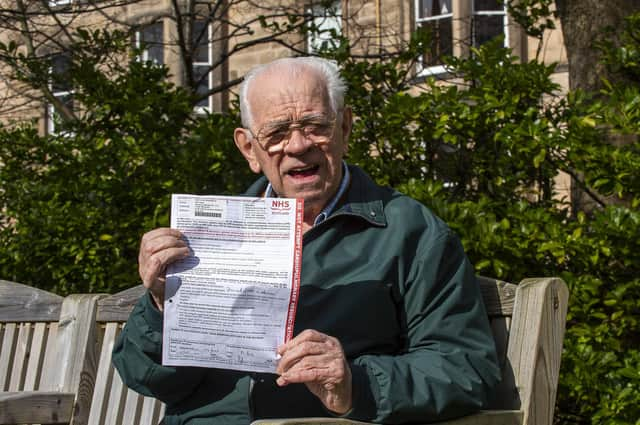'Do Not Attempt Resuscitation' (DNAR) letters handed to hospital patients may seem like a threat – Helen Martin


There is now confusion about whether resuscitation will happen or if an individual is labelled DNAR (do not attempt resuscitation), as shared recently by 80-year-old David Hay from Edinburgh.
He had suffered a seizure, was treated in ICU and was about to be taken home when he was asked to sign the DNAR letter. He didn’t. That’s happened with hundreds of people.
Advertisement
Hide AdAdvertisement
Hide AdThe NHS policy is simply that cardiac and respiratory resuscitation should not happen if it is inappropriate, futile, or that patients don’t want it.
My mother signed up for DNAR when aged over 90 with middle-stage dementia, and she moved into a nursing home. She had worked for decades as the senior sister in a heart and lung ICU ward, so declared she knew her resuscitation would be hellish. And she was cared for with several non-lethal health problems, until she died peacefully in her sleep aged 98.
It’s an awkward discussion for doctors explaining to patients their knowledge and understanding of when death is appropriate and revival can be a punishing disaster. And nowadays, they often don’t have the time.
But it seems very unfair to simply present a letter which seems like a threat to many patients who probably wrongly feel they won’t receive any medical treatment at all. Clinicians are supposed to compassionately and clearly discuss it with patients.
Advertisement
Hide AdAdvertisement
Hide AdSo, at least we need specially employed nurses or trained, sympathetic advisers whose total job is to explain DNAR.
A message from the Editor:
Thank you for reading this article. We're more reliant on your support than ever as the shift in consumer habits brought about by coronavirus impacts our advertisers.
If you haven't already, please consider supporting our trusted, fact-checked journalism by taking out a digital subscription.
Comment Guidelines
National World encourages reader discussion on our stories. User feedback, insights and back-and-forth exchanges add a rich layer of context to reporting. Please review our Community Guidelines before commenting.